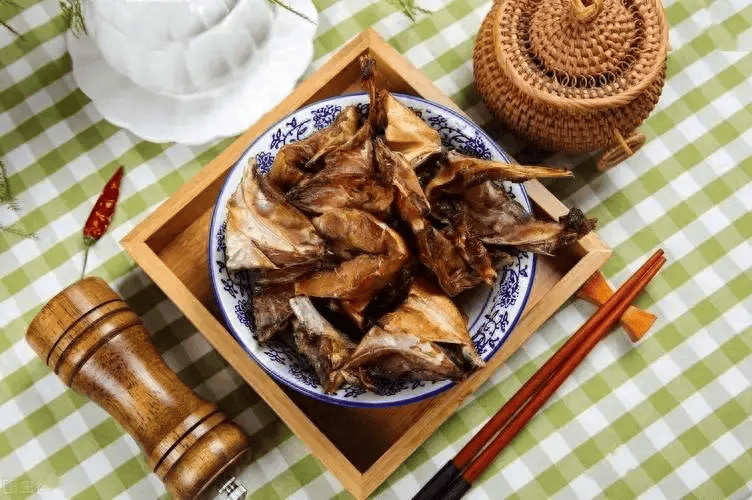Before reading this article, we invite you to click “Follow” to facilitate your discussions and sharing, and to give you more professional health knowledge to help protect your health. Thank you for your support.
In a typical city hospital consultation room, Aunt Zhang, a 70-year-old retired teacher, sat pale-faced in a wheelchair, listening to the doctor’s explanation. She was diagnosed with a cerebral thrombosis five months ago, and the situation has not been optimistic.
The doctor looked around at the anxious family members and gently said, “Aunt Zhang, I know this is very difficult for you, but we need to talk about your dietary habits. Your food choices may be a key factor in this health crisis.”
Aunt Zhang’s daughter couldn’t help but interject, “Doctor, my mom likes to eat salty fish and pickled vegetables normally. Is that wrong?”
The doctor nodded gently and explained in a friendly tone, “Yes, you see, these foods, high in salt and fat, are not nutritious enough. These are indeed areas we need to be careful about.
Especially for elderly people like your mother, these foods – salty fish, pickled vegetables, smoked meat, and high-fat red meat – eating these things regularly greatly increases the risk of cardiovascular and cerebrovascular diseases.”
Aunt Zhang’s eyes revealed a hint of guilt, and she responded softly, “I used to think these were just habits, never considering how they could affect my health.”
The doctor continued, “Many elderly people think these are just normal dietary habits, but in reality, they put a lot of pressure on the blood vessels, especially the cerebral blood vessels.”
High salt intake can lead to high blood pressure, and long-term high salt consumption is an important factor leading to cerebral thrombosis. Foods high in fat, such as smoked meat and some red meat, contain a large amount of saturated fat and cholesterol, which are triggers for cardiovascular diseases.”
Aunt Zhang’s son furrowed his brow and asked, “So, doctor, how should we adjust our diet?”
The doctor gently suggested, “First, we should try to eat less of high-salt foods like salty fish and pickled vegetables. Then, eat more vegetables and fruits, which are good things rich in vitamins and minerals, helping the body reduce inflammation and benefiting the blood vessels.”
“Next, try using plant-based oils, such as olive oil, instead of animal fats like lard. Finally, don’t forget to stay active, like taking walks and doing gentle exercises, which are also very beneficial for the body.”
In the following months, Aunt Zhang’s family began adjusting their diet according to the doctor’s advice and gradually saw some positive changes. Aunt Zhang’s blood pressure slightly decreased, and her overall condition improved slightly.
Five months later, although Aunt Zhang ultimately did not overcome the illness due to accumulated lifestyle habits, her experience became a lesson for the younger generation in the family.
They realized the importance of a healthy lifestyle and correct dietary habits in maintaining health. So after Aunt Zhang’s departure, they initiated numerous activities on healthy eating,
including lectures and cooking classes, inviting nutrition experts and doctors to share how to build healthy dietary habits and how proper diet can help us stay away from cardiovascular and cerebrovascular diseases.
These activities received strong approval from the community residents. Many people began re-evaluating their dietary habits, reducing the intake of high-salt and high-fat foods, and turning to a more balanced and healthy diet.
The community’s awareness of health significantly increased, and residents began experiencing positive changes brought by a healthy lifestyle. At a community gathering, Aunt Zhang’s granddaughter shared her grandmother’s story.
She said, “Although we cannot change the past, we can influence the future through today’s choices. Grandma’s experience has taught us a lot, most importantly to cherish and maintain our health.”
Then, a community resident raised a question, “Doctor, how can we balance our daily diet to ensure we get enough nutrition while preventing diseases?”
The doctor explained in detail, “First, ensure dietary diversity, consume more vegetables, fruits, whole grains, and high-quality proteins. Next, you also need to change the oil you use for cooking.”
“Choose plant-based oils, they are good for the body. Lastly, engage in more physical activity, which benefits all parts of your body.”
Through Aunt Zhang’s story and the doctor’s advice, community residents gained valuable knowledge on how to maintain their and their family’s health through small changes in daily life.
Although Aunt Zhang’s life has ended, her story and lessons have left a lasting impact on the community, inspiring everyone to cherish life and pursue health.
What are your thoughts on Aunt Zhang’s passing due to cerebral thrombosis? Feel free to discuss in the comments section!


